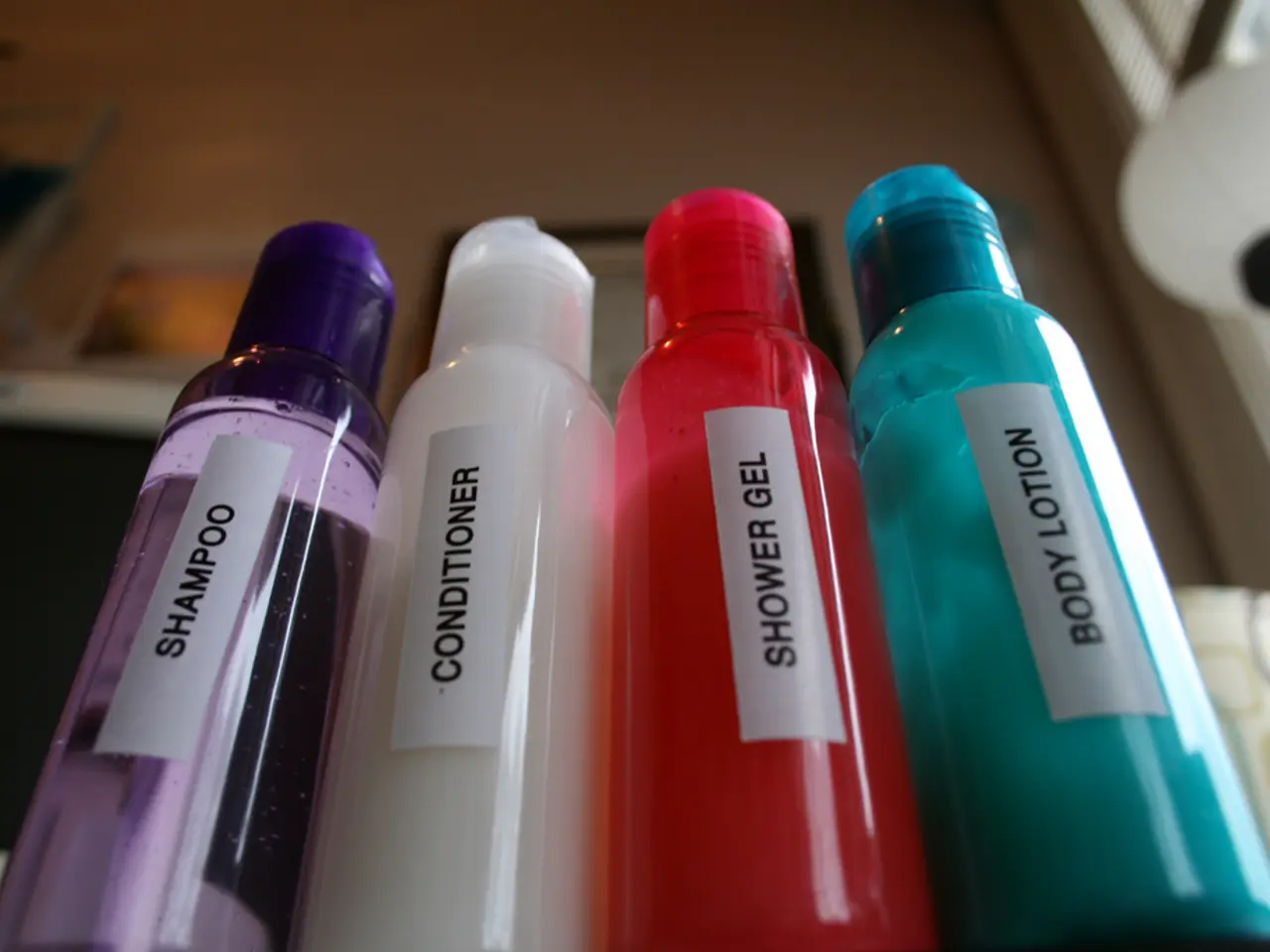Hair Care Comparison: Cowash versus Shampoo - Which Suits Which Hair Types Best?
In the world of hair care, a new trend is gaining popularity – cowashing. This innovative technique involves using conditioner as a substitute for shampoo to cleanse the hair.
Cowashing can be particularly beneficial for those with curly, coily, or textured hair. These hair types, which include wavy and curly hair with an elliptical or "S"-shaped shaft, are prone to dryness and frizz. Cowashing helps seal in water and avoid using harsh surfactants that strip moisture from the hair, making it an ideal choice for these hair types.
However, it's essential to understand that the benefits of cowashing are largely anecdotal, as there is currently no scientific data on its advantages. The practice is largely a cultural one, and no studies have yet looked at how it affects hair.
To cowash, one first gets the hair thoroughly wet, applies conditioner to the scalp and gently scrubs with the fingertips, rinses out the conditioner, applies the same product as a typical conditioner, and may choose to leave the conditioner on for a few minutes or rinse straight away.
While cowashing can completely replace shampooing, some people might opt to alternate between the two. When managing oily residue buildup, using a clarifying shampoo about once every 1 to 2 weeks is generally recommended. The exact frequency depends on your hair type and oiliness.
Cowashing involves using conditioners, which usually contain cationic surfactants, such as cetyl alcohol, that stick to the surface of the hair, coating the follicle and smoothing it down, rather than creating a lather. This makes cowashing a gentler option compared to shampoo, which typically contains harsher anionic surfactants, such as sodium lauryl sulfate, that create a lather.
Different hair types have different needs, and whether cowashing helps maintain healthy hair depends on the hair type. For example, those with high porosity hair, which easily accepts moisture but loses it quickly, can benefit from conditioners containing proteins and heavier oils. On the other hand, those with low porosity hair, which accepts moisture less easily but retains it for longer, may find more benefit with conditioners that do not contain proteins or thick butters, and instead contain lighter oils or humectants.
For those with wavy hair, cowashing can be beneficial for those with thicker or drier hair, but those with finer wavy hair may prefer a lighter conditioner and more frequent shampooing.
When it comes to making the switch to more sustainable hair products, researching a product, its ingredients, and the company's practices is crucial. Additionally, seeking advice from cowashing forums, hairstylists, or dermatologists can provide valuable tips and feedback on cowashing.
Another potential benefit of cowashing is environmental, as using one product to clean the hair reduces consumption. This can be a significant advantage for those looking to reduce their environmental footprint.
In summary, cowashing offers a gentler approach to hair care, particularly for those with curly, coily, or textured hair. However, it's essential to listen to your hair's behaviour and adjust your cowashing routine accordingly. Whether you choose to cowash or stick to traditional shampooing, understanding your hair's unique needs and finding the right products is key to maintaining healthy, beautiful hair.
[1] Source: Haircare Scientist [3] Source: Curly Nikki [5] Source: Naturally Curly
- In the realm of skincare, similar debates surrounding household items occur, such as the use of baking soda or apple cider vinegar as natural moisturizers. Just like cowashing, these practices have anecdotal benefits but lack scientific data to support their advantages.
- For those highly committed to the health-and-wellness lifestyle, adopting such home remedies can be appealing, demonstrating their creative approach to everyday routines. Despite the lack of scientific evidence, these practices can significantly improve lifestyle habits and overall well-being.
- Within the fashion-and-beauty industry, cowashing has sparked conversations on sustainable hair care products. As consumers become more mindful about their purchases, they seek eco-friendly options that align with their values in food-and-drink, home-and-garden, as well as beauty products.
- It is essential to consider the health of not just our hair but also our planet. By minimizing unnecessary product consumption, such as through cowashing or using multifunctional household items, we can contribute to a greener lifestyle and reduce our carbon footprint.




